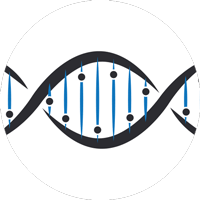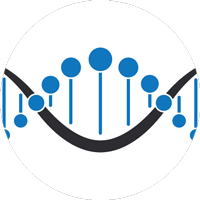
Ready to ditch carbs from your diet?
There’s a common misconception that “carbohydrates make you fat.” They don’t. Sure, if eaten in unnecessarily large quantities they could contribute to weight gain, but, then again, so could too much of any food. Carbohydrates, either sweet/gooey or crunchy/salty, are the feel-good foods of choice. The reason for the improvement in mood when consuming carbohydrates is due to the increase in the ‘feel-good’ brain chemical, serotonin.
However, for a diabetic patient, eating carbohydrates is a different story altogether.
When people eat a food containing carbohydrates, the digestive system breaks down the digestible ones into sugar, which enters the blood.
As blood sugar levels rise, the pancreas produces insulin, a hormone that prompts cells to absorb blood sugar for energy or storage. As cells absorb blood sugar, levels in the bloodstream begin to fall.
When this happens, the pancreas start making glucagon, a hormone that signals the liver to start releasing stored sugar.
This interplay of insulin and glucagon ensure that cells throughout the body, and especially in the brain, have a steady supply of blood sugar.
Carbohydrate metabolism plays a role in the development of Type 2 diabetes, which occurs when the body can’t make enough insulin or can’t properly use the insulin it makes. Type 2 diabetes usually develops gradually over a number of years, beginning when muscle and other cells stop responding to insulin. This condition, known as insulin resistance, causes blood sugar and insulin levels to stay high long after eating. Over time, the heavy demands made on the insulin-making cells wears them out, and insulin production eventually stops.
Studies have shown that your genes play a role in insulin and blood glucose levels. There can be a huge variation in blood glucose levels in response to carbohydrates. For example, some people may have blood sugar spikes from eating a banana, while others may have their blood sugar drop from eating bread. The individual variation from the studies is important as it demonstrates that people, especially diabetics, can react very differently to the same food they consume.
Genetic variations also play a role in how people react to carbohydrates in the diet. Why is this important? Diet advice is everywhere — from mass media to online health gurus and your doctor recommending specific diets to manage your condition. But generic recommendations may do nothing for you, and, if your goal is to prevent glucose spikes or the onset of diabetes, their well- meaning suggestions might actually be counterproductive to you.
And that is reason enough for you to do a DNA Profiling Test.


Genes of Interest and Recommendations
True You DNA profiling determines the variant profile of your two genes associated with carbohydrate response: ADRB2 and PPARG which are associated with lipid mobilisation within human fat cells, obesity and diabetes.
Knowing that your genes encode a specific outcome, you can mitigate their effects with certain tweaks to your diet and lifestyle including incorporating a balanced mix of complex and simple carbs, resistant starches and aerobic and anaerobic exercises.
In the past, carbohydrates were commonly classified as being either ‘simple’ or ‘complex,’ with simple carbohydrates composed of sugars (such as fructose and glucose) and complex carbohydrates composed of more complex chemical structures (known as oligosaccharides and polysaccharides).
Dividing carbohydrates into simple and complex, however, does not account for the effect of carbohydrates on blood sugar and chronic diseases. To explain how different kinds of carbohydrate-rich foods directly affect blood sugar, the glycaemic index was developed and is considered a better way of categorizing carbohydrates, especially starchy foods.
Eating many high-glycaemic-index foods – which cause powerful spikes in blood sugar – can lead to an increased risk for type 2 diabetes, heart disease and becoming overweight. There is also preliminary work linking high-glycaemic diets to age-related macular degeneration, ovulatory infertility and colorectal cancer. Foods with a low glycaemic index have been shown to help control type 2 diabetes and improve weight loss.



One thing that a food’s glycaemic index does not tell us is how much digestible carbohydrate – the total amount of carbohydrates excluding fibre – it delivers. That’s why researchers developed a related way to classify foods that takes into account both the amount of carbohydrate in the food in relation to its impact on blood sugar levels. This measure is called the glycaemic load.
A food’s glycaemic load is determined by multiplying its glycaemic index by the amount of carbohydrate the food contains. In general, a glycaemic load of 20 or more is high, 11 to 19 is medium, and 10 or under is low.
To help balance your diet, we recommend Elken Spirulina. It is densely packed with over 60 types of nutrients in the right proportion and can help you meet your daily nutritional requirements effortlessly but effectively, while living with hectic schedules.


As our body cannot produce minerals, we have to consume bioavailable minerals from our diet. However, food today contains very little minerals and nutrients so you will need to supplement your diet with Elken Kington Minérale which can help your body balance itself naturally.

